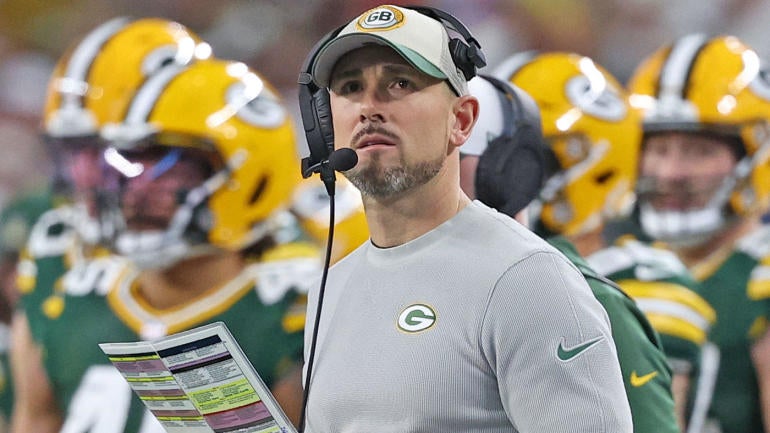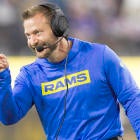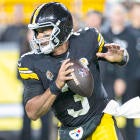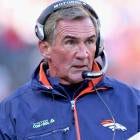
Last Sunday, the Green Bay Packers pulled off the biggest upset of the 14-team playoff era, becoming the first No. 7 seed to go on the road and beat the No. 2 seed in the conference. They did so by winning in AT&T Stadium against the Dallas Cowboys, something none of Dallas' last 16 opponents had been able to do.
Part of why they were able to pull it off was that the Packers started fast. They got the ball on the opening kickoff, and they went right down the field and scored a touchdown. Seven minutes and 52 seconds into the game, Green Bay led 7-0 and Dallas had yet to possess the football.
The interesting thing is that Green Bay got the ball first by choice, opting to receive the opening kickoff rather than deferring to the second half after winning the coin toss. According to the Packers' official website, head coach Matt LaFleur had opted to defer each of the first 39 times the team won the toss during his tenure, but starting back on Thanksgiving, when Green Bay went into Detroit and surprisingly smoked the Lions, the team has instead elected to take the ball.
"I think the guys just feed off it," offensive coordinator Adam Stenavich said of choosing to receive rather than defer. "The confidence the coaches have in the players -- their confidence, their excitement to go get the ball and get going. Anytime you can start fast and get seven points on the board in that first drive, I think that sets the tone for the entire game."
Many teams elect to defer to the second half so they can get the famed "double-up," a strategy inspired by Bill Belichick's desire to score on the final possession of the first half and the first possession of the second half, which -- if you can pull it off -- gives the opportunity to score twice in a row without your opponent having a chance to score once. The issue is that said strategy depends on possessing the ball last in the first half, which is not a guarantee, whereas taking the ball first automatically gives you a chance to score before your opponent does.
"I think it's the mentality, Coach LaFleur has been going out there and wanting the ball (after) the coin toss," offensive lineman Jon Runyan said. "If you don't start fast, you kind of feel like you're fighting uphill even more. That first drive, that first third down, that was one of the loudest crowds I've ever heard. As the game went forward, the second quarter, third quarter, the crowd got really quiet. It helps starting fast, putting 20 points on the board immediately, having their offense be in the 2-minute mode. … On the road, starting fast in a playoff game, it's a must-have really."
This weekend, the Packers are heading to San Francisco to take on the 49ers. They will almost certainly be getting the ball first, given that LaFleur has taken to receiving the opening kickoff and, given the opportunity, Kyle Shanahan always defers to the second half. So, they'll have an opportunity to jump out to an early lead once again.
"I think that gives us the edge to know we gotta start fast -- punch the ball in early and it's been working well for us the last few weeks," wide receiver Jayden Reed said. "We just gotta attack it the same every week. That's gonna be a hostile environment going down there against a great defense. We just gotta start the same, how we've been preparing every week and just start fast."
Taking the ball and scoring on the opening drive is obviously not a guarantee of victory. But especially when you are on the road and an underdog to win in the first place, getting out to an early lead can level the playing field a bit, and that can be an important development in the game.


















